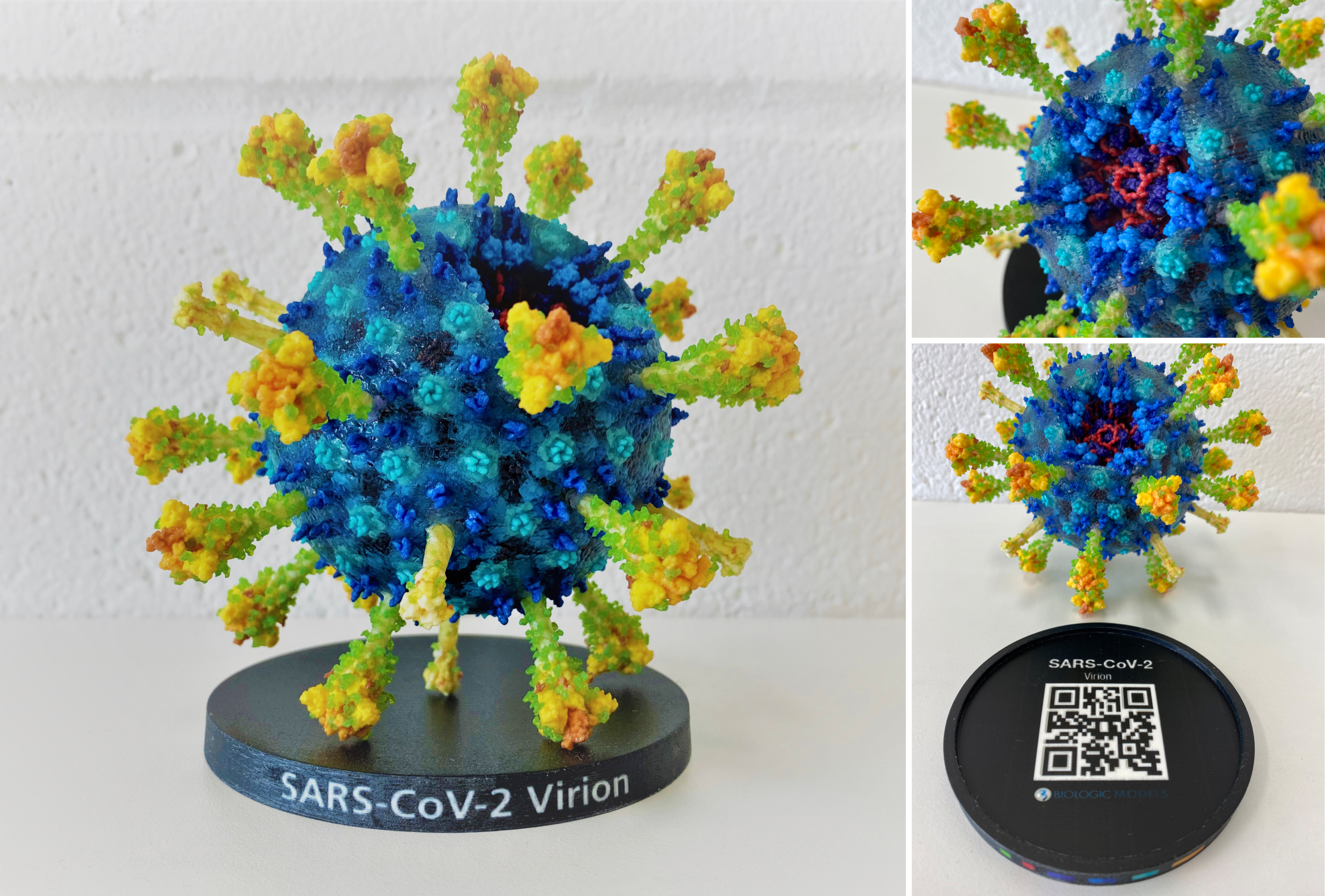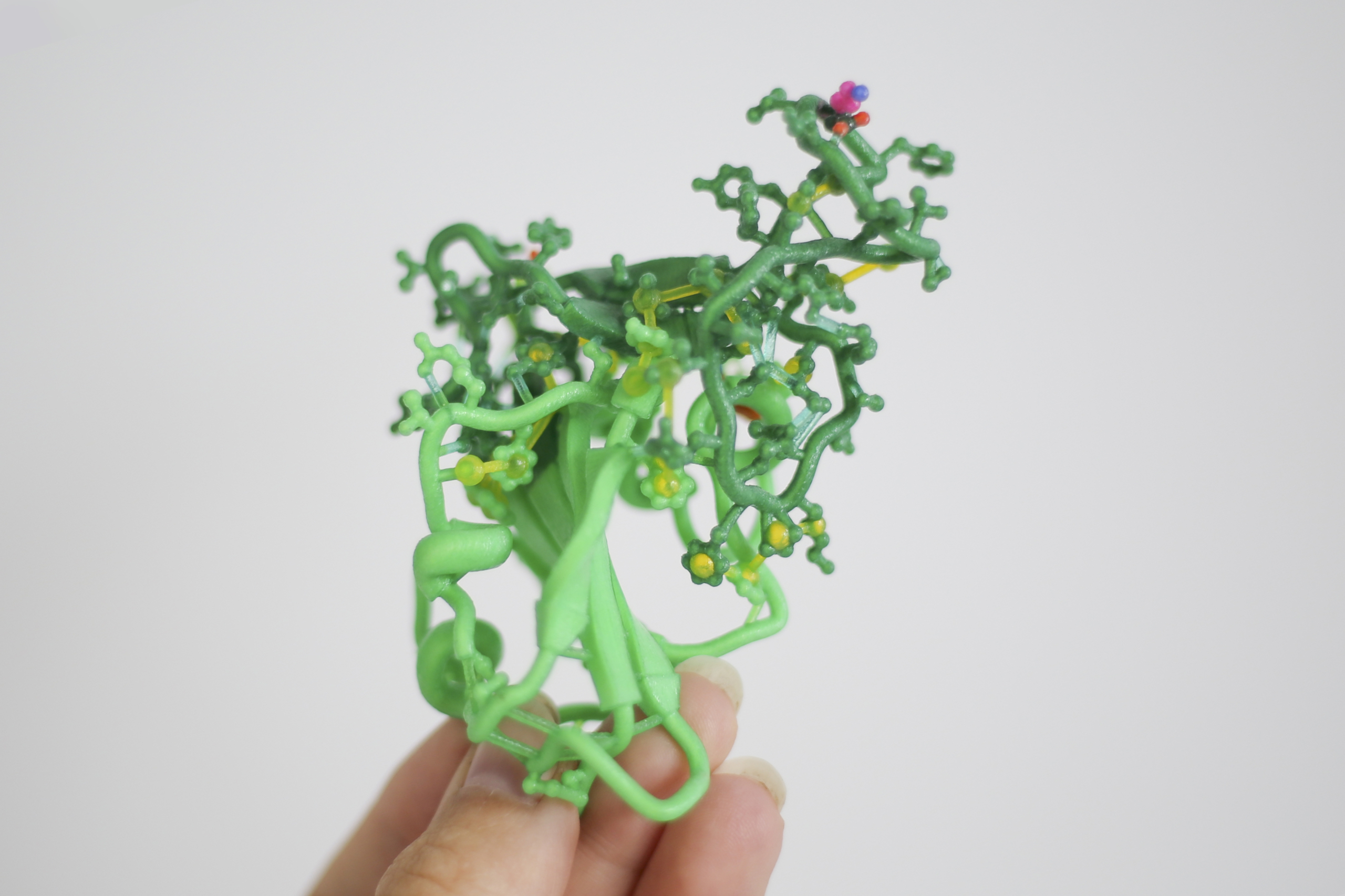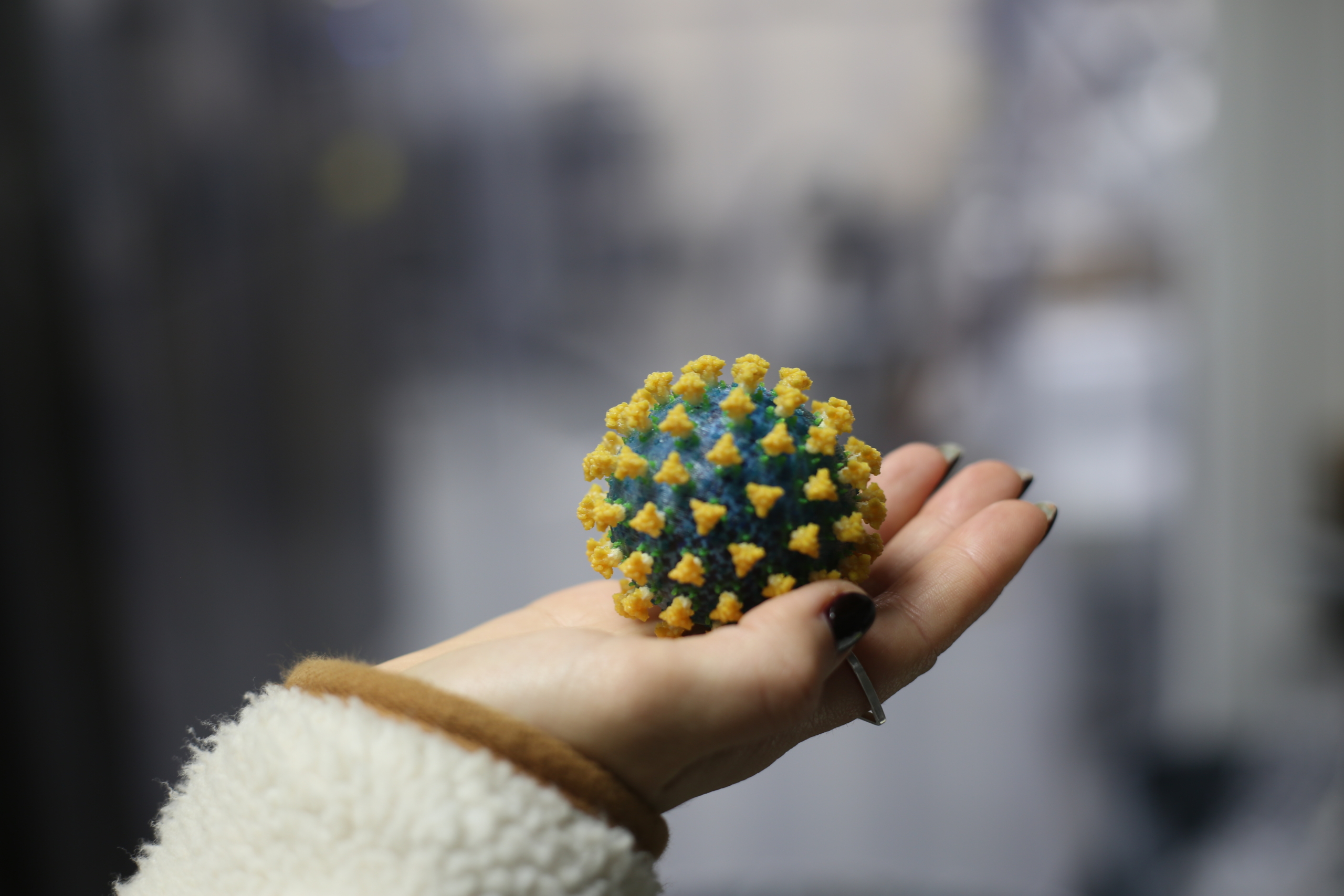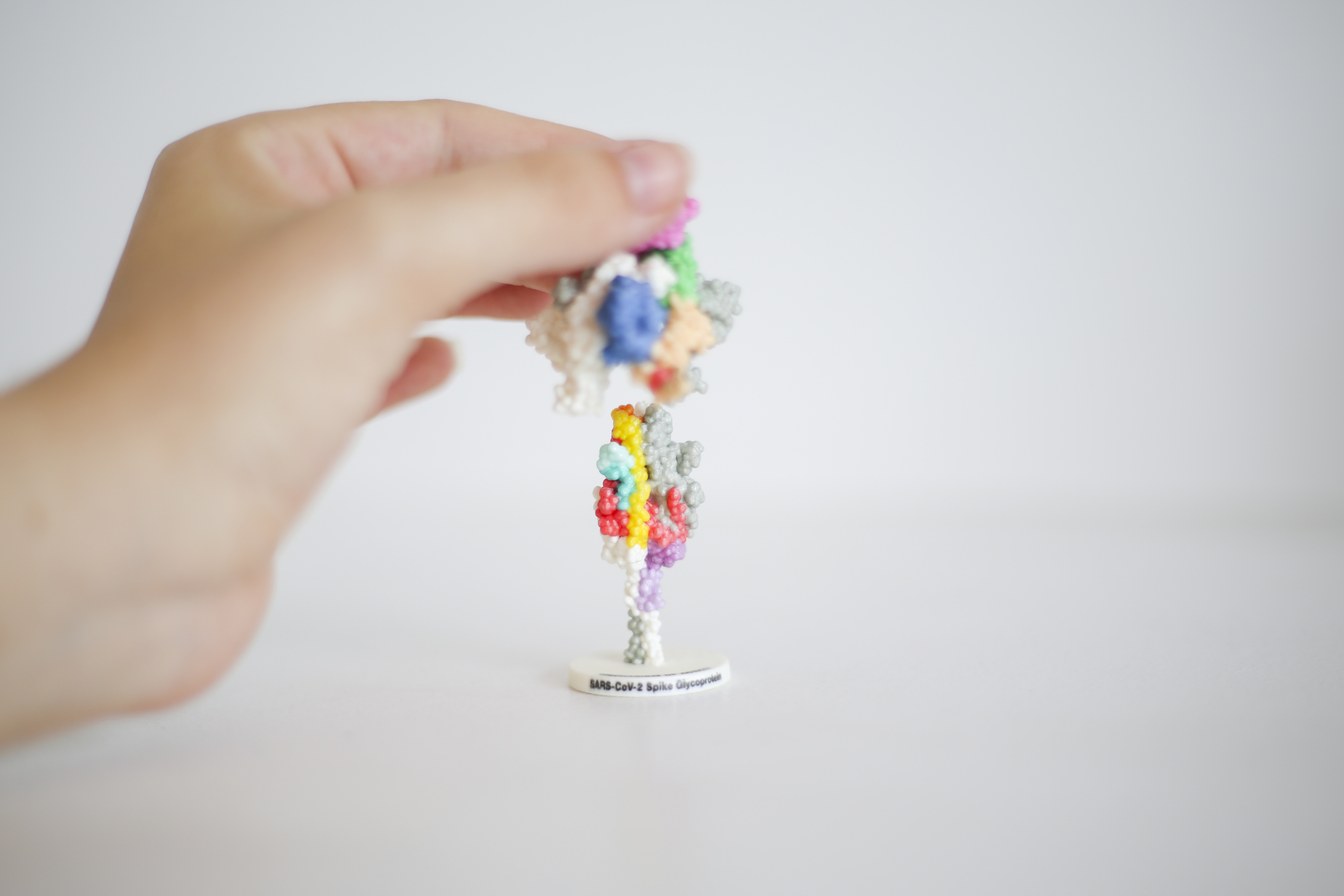Objex Unlimited collaborates with Biologic Models to recreate precise models of protein cells using the Mimaki 3DUJ-553
Recent projects include recreating coronavirus proteins to enable the rapid development of countermeasures and increase understanding of the virus.
Biologic Models, US-based 3D-printed protein model and medical animation provider, is using Mimaki’s 3D printing technology to produce intricate molecular visualization models, bringing protein into the tangible world in incredible detail. With Canadian-based Mimaki reseller Objex Unlimited, the two have successfully embarked on multiple projects for clients in education, research, and art using Mimaki’s full color 3D-printer, the 3DUJ-553. Most recently, Biologic Models and Objex Unlimited have produced models of coronavirus (SARS-CoV-2) to help with the rapid development of countermeasures to address the ongoing outbreak.
Biologic Models has carved out a niche in creating precise 3D models of proteins for research facilities and collectors using clinical research and x-ray crystallography protein data. Initially working in powder-based 3D printing, the company found that printing with a photopolymer-based 3D materials was a more suitable option. Notably this process offered durability, detail, and quick turnarounds, alongside a colour gamut 10x that of what is available with powder-based 3D printing. Another draw is how these prints, unlike sandstone, can be easily cleaned with a wet cloth, a necessary attribute in a post-COVID world for Biologic Model customers when displaying such items in exhibits. Last year, Biologic Models collaborated with Objex Unlimited to print its Collection of SARS-Cov-2 models with enhanced colour accuracy and varying degrees of transparency and opacity using the Mimaki 3DUJ-553.
“What drew me to Mimaki’s technology was its ability to simultaneously mix clear and color in order to achieve different levels of transparency, and more easily display the internal changes within a protein,” Casey Steffen, Director of Operations, Biologic Models comments. “With our upcoming coronavirus models, we’re tracking individual mutations on a ribbon model of the Spike Protein’s Receptor Binding Domain and assigning each new mutation a unique color. Viewers can learn about how the structure of the virus changes observing both the accumulation of colored residues and changes to the transparent intermolecular bonds. The intricate detail that we can achieve in a single print is amazing, working with Objex Unlimited has really opened my eyes to how 3D printing can create a more meaningful, accurate scientific model for our customers.”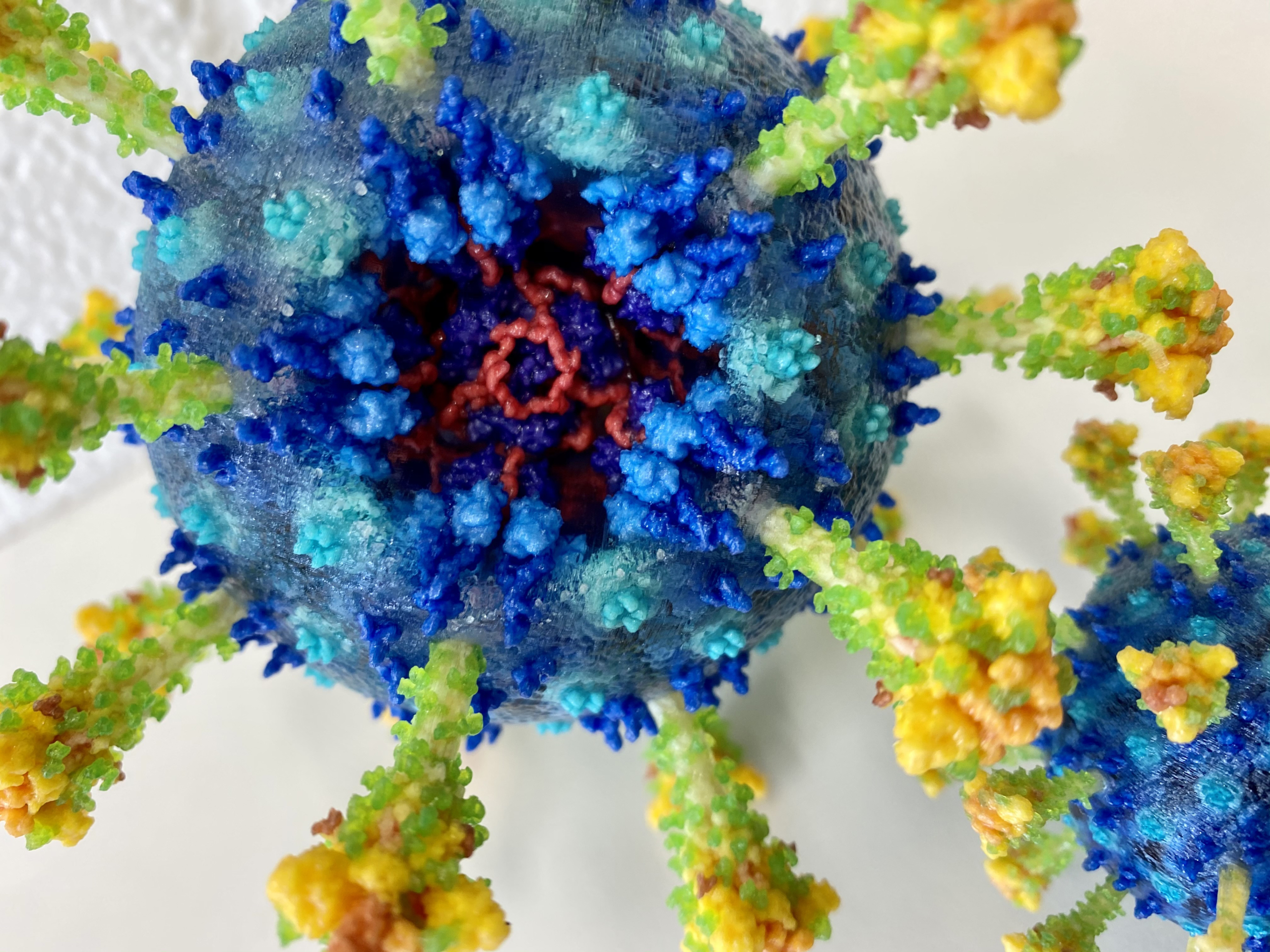
Using the 3DUJ-553’s 10-million colour capability, Biologic Models’ protein replicas are distinctly coloured to make biomedical research clearer and more identifiable to the viewer. 3D printing a tiny protein could include 10,000 or more individual atoms. This requires a level of detail that is easily achievable with the accuracy delivered with Mimaki’s 3D printing technology. Thanks to its multi-coloured printing accuracy, Biologic Models bridge the gap between physical and digital, including QR codes that lead to dedicated webpages that are readable at even the smallest 3D printed sizes. “Mimaki 3D prints facilitate both a physical and digital learning experience that was often unachievable because of the limitations of powder-based printing,” Steffen comments. “In fact, a new series of ‘Mechanism-of-Action’ protein models is set to begin releasing later this summer. This series of 3D printed models integrates AR experiences that allow viewers to digitally explore the protein data used to create the 3D printed protein model. Exclusive to these Mimaki 3D prints is a never-before-seen molecular animation that visualizes how the Spike Glycoprotein changes shape during infection.”
“The level of accuracy and detail that we incorporate into these models requires a 3D printing technology that produces strong and durable parts. It also has to be easy to use, quick to print, and produce cost-effective models for customers that only need one-off products or visualizations – a crucial advantage for many of Biologic Models’ customers who work on research projects that may soon evolve or need to be updated,” Steve Cory, President, Objex Unlimited concluded. “Mimaki’s 3D printing technology offers the flexibility to realize the most complex molecular structures with ease and incredible accuracy, enabling us to produce models that support even the most high-profile and demanding research projects.”
Biologic Models and Objex Unlimited are currently debuting the brand-new SARS-COV-2 Virion model, which includes the latest research about the virus structure and function. The duo has collaborated to ensure the entire SARS-CoV-2 Collection fits inside the new desktop printer. This maximizes the cost-effectiveness of each model Biologic Model customers. Individual pieces of the SARS-Cov-2 Collection printed on Mimaki 3D printer are available for purchase using the following link: https://biologic-models.myshopify.com/collections/sars-cov-2


